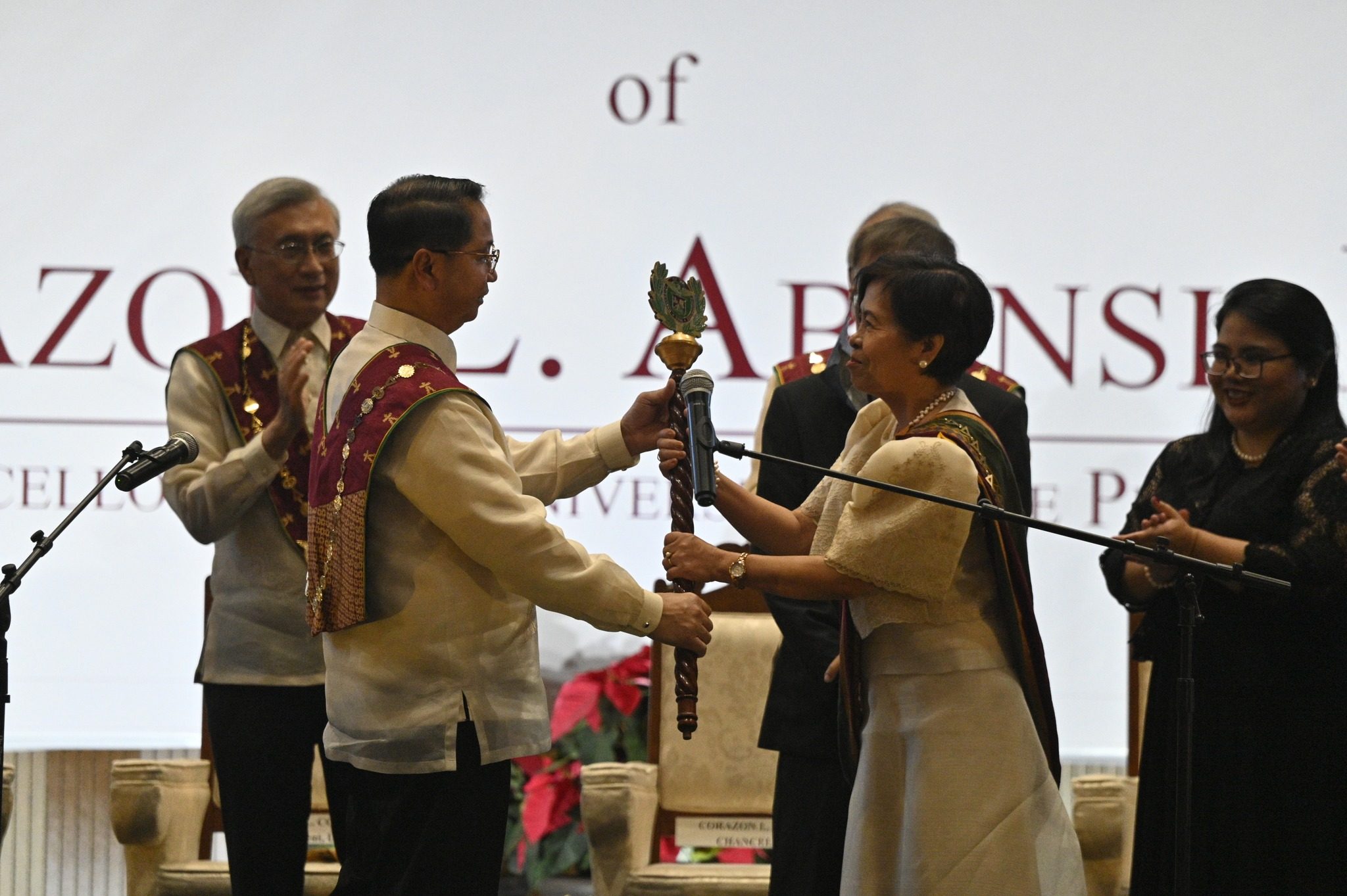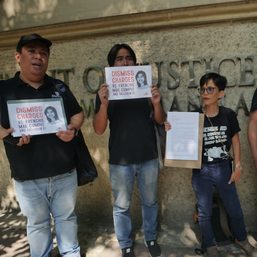SUMMARY
This is AI generated summarization, which may have errors. For context, always refer to the full article.

BAGUIO CITY, Philippines – Rampant red-tagging of students, alumni, and other University of the Philippines community members has prompted the new administration of its Baguio City campus to include the dangerous practice in the Crisis Management Committee’s (CMC) list of concerns.
“It becomes imperative for leadership to enhance a transformative strategy that builds long-term value and craft decisions that will ensure that the University is both resilient and safe,” Dr. Corazon Abansi stressed during her inauguration as the third chancellor of UP Baguio on Friday, December 2.
Persistent attempts to associate activists and government critics with communist rebels runs contrary to the university’s policy of allowing multi-sectoral representation, Abansi earlier told protesting students, explaining the broadened scope of the school’s CMC, which she chairs.
Aside from red tagging, the crisis committee also looks at natural disasters, occupational safety, and mental health issues.
Responsive administration, the new chancellor said, “involves careful planning to protect our name, institutional image, reputation and brand; and most importantly, to take good care of our people.”
The chancellor had earlier mentioned her plan to institutionalize protection and support for red-tagging victims belonging to the UP Baguio community before protesting students on November 8.
The demonstrators had condemned the National Service Training Program lecture the day before, where a resource person accused several student and youth groups of being fronts of “communist-terrorist groups.”
Abansi, whose experience includes working in private and public institutions, was assigned to lead UP Baguio in April 2021. She was the Vice Chancellor for Academic Affairs before her appointment. The professor also served as the Students Affairs director and head of the Institute of Management. She will serve until April 13, 2024.
Professor Cecilia Fe Abalos, head of the university’s Public Affairs Office and vice chair of the CMC, explained that committee members come from the different offices in the campus. This includes representatives from the student council and faculty and workers’ unions.
It also includes the System Network Office and the Legal Office, which she believes would contribute significantly to monitoring online attacks and recommending actions. Other offices represented in the body are the Vice Chancellor for Administration, Disaster Risk Reduction and Management, and the UP Police.
Abalos said that CMC is consulting all stakeholders in the university and recently gained good inputs from student leaders on how to view red-tagging and what steps to take against it.
University officials created the committee to address natural and man-made disasters that threaten the well-being of the UP Baguio students and employees, including health concerns. Red-tagging falls under special concerns, or actions and events that “may cause direct harm to UP Baguio employees, students and other stakeholders which may affect an organization or institution.” – Rappler.com
Add a comment
How does this make you feel?







![[OPINYON] Tungkol sa naging viral na social media conjecture](https://www.rappler.com/tachyon/2024/07/thought-leaders-conjecture-07262024.jpg?resize=257%2C257&crop_strategy=attention)

![[EDITORIAL] Apat na taon na lang Ginoong Marcos, ‘di na puwede ang papetiks-petiks](https://www.rappler.com/tachyon/2024/07/animated-bongbong-marcos-2024-sona-day-carousel.jpg?resize=257%2C257&crop=280px%2C0px%2C720px%2C720px)





![[Newspoint] A little walk-back](https://www.rappler.com/tachyon/2024/05/tl-a-little-walk-back-05182024.jpg?resize=257%2C257&crop=215px%2C0px%2C720px%2C720px)




There are no comments yet. Add your comment to start the conversation.